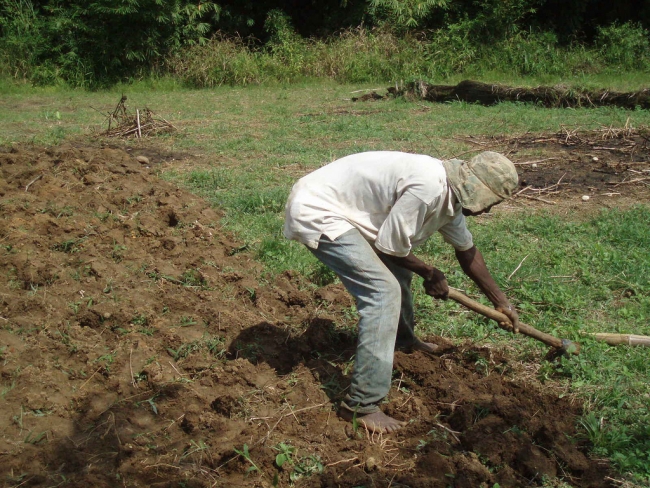Bill Gates made a startling observation at the World Economic Forum last month. He pointed out that in Africa, where I live, 70 percent of adults farm. And yet my continent imports food from the United States, where less than 2 percent of the population farms.
There is of course nothing wrong with international trade: Africans and Americans should buy goods and services from each other as much as they like. Sadly, though, African farmers don’t grow enough food to feed the people on our own continent.
As a farmer in Ghana, I see this problem every day. Farmers struggle with everything from the unpredictability of the weather to the poor condition of the roads. Women are critical to food production, but in many places we lack basic rights to land and can’t access loan / credit facilities and agricultural extension services.
Perhaps most important, we need access to modern technology. The 21st-century tools that farmers in the United States and many other advanced countries take for granted remain beyond our reach.
My family owns a 30 acre farm at Aboa, a rural community in the Eastern Region of Ghana. We grow cassava and yam in one section. The rest of our land is forested, and we use it as a wild provision for fruits, snails, and mushrooms.
We know what we’re missing because we’ve seen the gains achieved by a relative of mine. He was planting maize on a small scale. When I returned from a program sponsored by Africa Lead and the World Food Prize, I introduced him to several new ideas involving better seeds, machinery, and fertilizer. He went from harvesting three to six bags of maize per acre to 30 bags per acre.
These are some of the fundamental tools of the Green Revolution. What we really need, however, is to become a part of the “Gene Revolution,” the global movement toward the adoption of biotechnology in agriculture. Last week, the International Service for the Acquisition of Agri-Biotech Applications (ISAAA) released its annual report and found that roughly 18 million farmers—90 percent of them smallholders like me—planted a record 181 million hectares of GM crops last year.
This is a welcome news, but also bittersweet: From my farm in Ghana, it looks like Africa is falling behind once more. Farmers in much of the rest of the world increased their reliance on biotech crops in 2014.
Only in Burkina Faso, South Africa, and Sudan do farmers enjoy access to these crops, as they have for some time. The rest of us have not fully adopted the innovation of improving agriculture due to limited extensive education on its importance.
We may yet benefit. Ghana and six other African countries have conducted field trials of GM crops, including rice, maize, wheat, sorghum, bananas, cassava, and sweet potato, according to the ISAAA. Until they are commercialized, however, farmers like me and the rural women that I work with will remain dependent upon traditional methods and technologies to produce the food our growing continent needs.
Women have the most to gain. Although men dominate work in cash crops, we produce about 70 percent of our food crops. We also add more value to the crops we grow: 80 percent of us turn produce into semi-finished or finished products. We turn fresh cassava into kokonte, dough, and gari, for instance.
What’s more, we practice sustainable agriculture, using every part of the crop possible. We dry the peels from cassava and other roots and tubers for livestock feed. Nothing goes to waste.
We would do better for ourselves and our customers if we could grow more and better cassava—and the best opportunities for improvement come from advanced technology. GM plays an important role in improved agriculture production. Providing farmer education, including the provision of reliable extensions officers, are critical tools needed given that the majority of small holder farmers in Africa are illiterate or semi-illiterate. To prevent people from living in hunger, we need all of these tools.
Scientists are already trying to develop varieties of cassava that resist diseases and pests, as well as types that are biofortified to enhance nutrition. We must cheer their efforts in every way, and not seek to block them through political interference.
I like to farm, and to contribute to the food security of Ghana. Every day, I see the effectiveness of rural women farmers who collaborate, empower each other, and advocate in their own communities and with policy makers. I look forward to a day when Africans can feed themselves—and have so much food that Bill Gates reverses his statement about farmers in his land and mine.
Lydia Sasu was born into a farming family in Aboa, Ghana. Committed to improving the lives of rural women farmers, Lydia serves as the Executive Director of the Development Action Association (DAA) and is a member of the TATT Global Farmer Network (www.truthabouttrade.org).
Follow us: @TruthAboutTrade and @World_Farmers on Twitter | Truth About Trade & Technology on Facebook.

